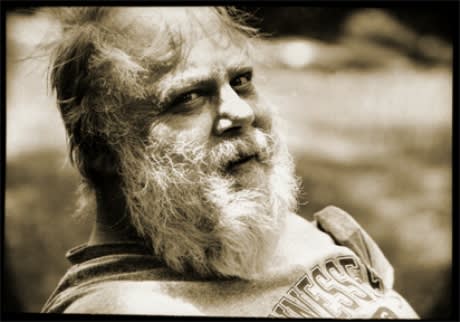There was a time when mental illness was viewed as something that could be treated with electroshock therapy and the afflicted individual could return home swiftly as though nothing had happened. If it reoccurred, a quick return trip to a hospital's mental ward for a few days was a good remedy. In the 1950's and 60's people rarely spoke of it, opting instead to whisper about it in hushed tones, shielding it from friends, family and the community in an attempt to save face.
Fortunately, in recent years, mental illness has stepped into the spotlight and people are slowly accepting the reality that it is a very serious ailment that needs to be treated with extensive psychotherapy rather than brushing it under the rug, hoping it will go away.
A Sister's Call, from directors Rebecca Schaper and Kyle Tekiela, is an incredibly profound documentary that addresses how mental illness was viewed and handled in the past, while concurrently exploring current treatment methods and the long road to recovery.
In 1977, Call Richmond disappeared from his seemingly normal upper-middleclass family. Twenty years later, he mysteriously returned, homeless and plagued by paranoid schizophrenia. The film, recorded over a fourteen year span, follows Call's sister, Rebecca, as she attempts to, "bring her brother back."
Chronicling the painstaking trials and tribulations Rebecca and her family face as they attempt to get Call the treatment he desperately needs, we witness firsthand the challenges they encounter with incorrect diagnoses and medication combinations that serve to intensify the illness rather than aid.
While the film's primary focus is on Call, it explores their family's past and begins to uncover a history of mental illness that has been present since Call and Rebecca were small children. While celebrating Call's own healing process, the family encounters other dark secrets that have long been forgotten, which leads to a much larger tale of familial recovery and healing.
While A Sister's Call initially plays as a simple tale of a man that went missing for twenty years, the tragedies that surface over the course of the 14 years of filming change the trajectory and scope, making this a far more gripping and difficult documentary to watch than originally expected. And despite all of the sadness and woe that is uncovered, this tale of inspiration and triumph proves to be an emotional journey that transcends its challenging subject matter.
(Grey Hawk Productions)Fortunately, in recent years, mental illness has stepped into the spotlight and people are slowly accepting the reality that it is a very serious ailment that needs to be treated with extensive psychotherapy rather than brushing it under the rug, hoping it will go away.
A Sister's Call, from directors Rebecca Schaper and Kyle Tekiela, is an incredibly profound documentary that addresses how mental illness was viewed and handled in the past, while concurrently exploring current treatment methods and the long road to recovery.
In 1977, Call Richmond disappeared from his seemingly normal upper-middleclass family. Twenty years later, he mysteriously returned, homeless and plagued by paranoid schizophrenia. The film, recorded over a fourteen year span, follows Call's sister, Rebecca, as she attempts to, "bring her brother back."
Chronicling the painstaking trials and tribulations Rebecca and her family face as they attempt to get Call the treatment he desperately needs, we witness firsthand the challenges they encounter with incorrect diagnoses and medication combinations that serve to intensify the illness rather than aid.
While the film's primary focus is on Call, it explores their family's past and begins to uncover a history of mental illness that has been present since Call and Rebecca were small children. While celebrating Call's own healing process, the family encounters other dark secrets that have long been forgotten, which leads to a much larger tale of familial recovery and healing.
While A Sister's Call initially plays as a simple tale of a man that went missing for twenty years, the tragedies that surface over the course of the 14 years of filming change the trajectory and scope, making this a far more gripping and difficult documentary to watch than originally expected. And despite all of the sadness and woe that is uncovered, this tale of inspiration and triumph proves to be an emotional journey that transcends its challenging subject matter.
